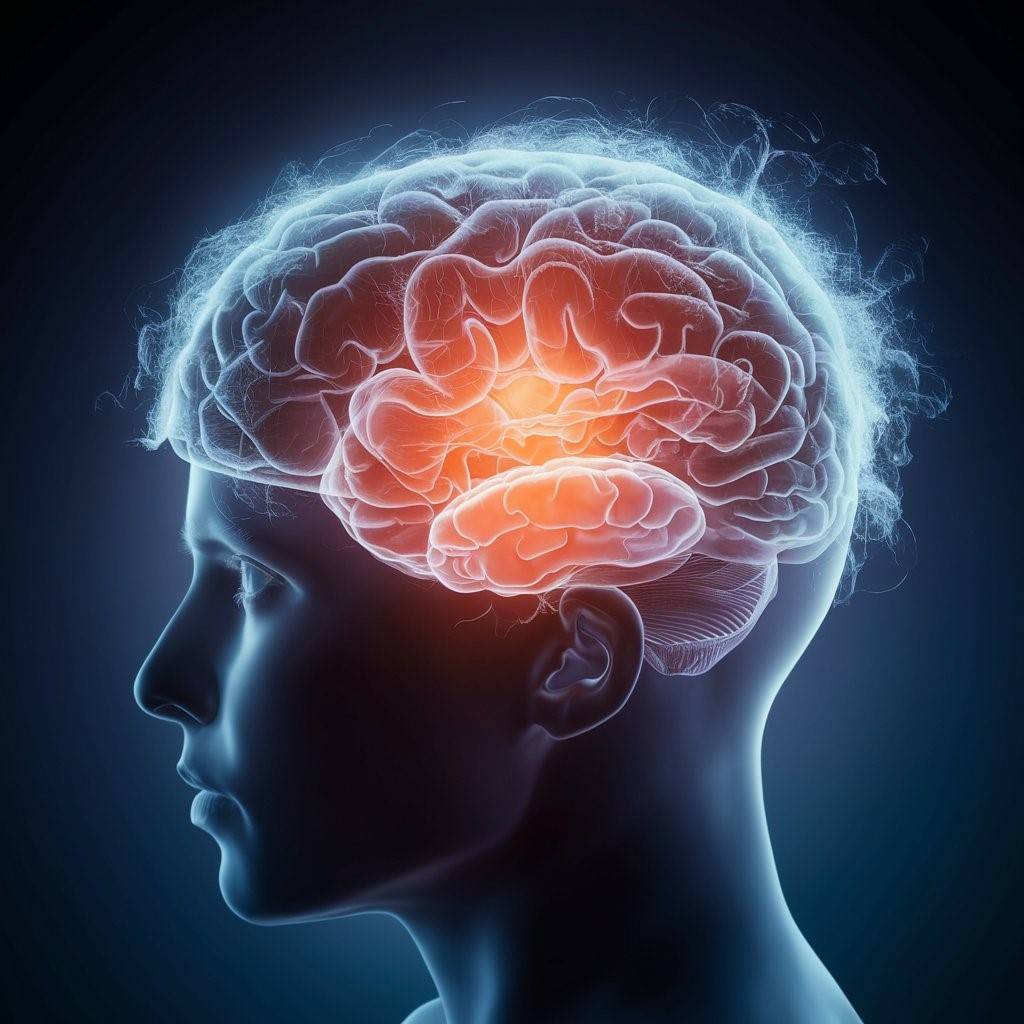Brain Fog: Unlock Your Mental Clarity with These Simple Strategies
Discover effective strategies to combat brain fog and regain mental clarity. Unlock your cognitive potential today!
Introduction
Do you often find yourself feeling mentally sluggish, forgetful, or unable to concentrate? If so, you may be experiencing a condition commonly known as brain fog. This cognitive impairment can manifest in various ways, from difficulty focusing and poor memory to a general sense of mental fatigue and confusion.
In today’s fast-paced world, brain fog can significantly impact our productivity, decision-making abilities, and overall well-being. However, by understanding the potential causes and implementing simple strategies, you can regain your mental clarity and overcome the haze of mental fog.
Understanding Brain Fog

It is a term used to describe a state of mental cloudiness or lack of focus. It’s not a medical condition in itself, but a symptom that can arise from various underlying causes. Some common contributors to brain fog include:
- Stress and anxiety: When we experience chronic stress, our bodies release cortisol, a hormone that can impair cognitive function and lead to cognitive fog.
- Lack of Sleep: Insufficient or poor-quality sleep can significantly affect our ability to concentrate and think clearly, resulting in a foggy mental state.
- Nutritional Deficiencies: Certain vitamin and mineral deficiencies, particularly those involving B vitamins, iron, and omega-3 fatty acids, have been linked to mental fuzziness.
- Medical Conditions: Certain medical conditions, such as thyroid disorders, chronic fatigue syndrome, and autoimmune diseases, can contribute to cognitive impairment and cognitive fog.
- Hormonal Imbalances: Fluctuations in hormones, such as those experienced during menopause or andropause, can affect cognitive function and cause mind haze.
While a cognitive cloud can be frustrating, the news is that by addressing the underlying causes and implementing simple lifestyle changes, you can regain your mental clarity and improve your overall cognitive performance.
List: Signs and Symptoms of Brain Fog
- Difficulty concentrating or focusing
- Forgetfulness or memory lapses
- Feeling mentally sluggish or fatigued
- Decreased productivity and motivation
- Confusion or disorientation
- Difficulty finding the right words
- Inability to think clearly or make decisions
Strategies to Combat Brain Fog
Stay Hydrated
Dehydration can have a significant impact on our cognitive function, leading to fatigue, difficulty concentrating, and cognitive fog. Ensuring adequate hydration is crucial for maintaining mental clarity.
Aim to drink at least eight glasses of water per day, and consider incorporating water-rich foods like cucumbers, watermelon, and berries into your diet. Additionally, limit your intake of diuretics, such as caffeine and alcohol, as they can contribute to dehydration.
Get Quality Sleep
Lack of sleep is one of the most common causes of mental fuzziness. When we don’t get enough quality sleep, our cognitive abilities suffer, and we may experience difficulties with attention, memory, and decision-making.
To combat mind haze, aim for seven to nine hours of sleep each night. Establish a consistent sleep routine, create a relaxing sleep environment, and limit exposure to blue light from electronic devices before bedtime.
List: Tips for Better Sleep
- Establish a consistent sleep schedule
- Create a relaxing bedtime routine
- Ensure your bedroom is cool, dark, and muted
- Avoid caffeine and alcohol close to bedtime
- Limit screen time before bed
- Practice relaxation techniques like deep breathing or meditation
Exercise Regularly
Regular physical activity has numerous benefits for both physical and mental health, including improved cognitive function and reduced risk of brain haze. Exercise increases blood flow and oxygen to the brain, which can enhance mental clarity and focus.
Aim for at least 150 minutes of moderate aerobic activity or 75 minutes of vigorous aerobic activity per week, combined with strength training exercises. Even simple activities like walking or yoga can help combat mental fuzziness and improve overall cognitive performance.
Reduce Stress and Practice Relaxation Techniques
Chronic stress can take a toll on our cognitive function and contribute to brain fog. To combat stress and its negative effects, it’s important to incorporate relaxation techniques into your daily routine.
Consider practicing mindfulness meditation, deep breathing exercises, or yoga. These activities can help reduce stress levels, promote relaxation, and improve mental clarity.
Eat a Balanced and Nutrient-Rich Diet
Proper nutrition plays a crucial role in maintaining cognitive function and preventing mind haze. Certain nutrients, such as omega-3 fatty acids, B vitamins, and antioxidants, have been shown to support brain health and improve mental clarity.
Incorporate a variety of nutrient-dense foods into your diet, including fatty fish, leafy greens, berries, nuts, and whole grains. Additionally, limit your intake of processed and sugary foods, as they can contribute to inflammation and exacerbate brain haze.
Table: Nutrients that Support Cognitive Function
| Nutrient | Food Sources | Benefits |
| Omega-3 Fatty Acids | Fatty fish, walnuts, flaxseeds | Support brain development and function, reduce inflammation |
| B Vitamins | Whole grains, leafy greens, eggs | Involved in energy production and neurotransmitter synthesis |
| Antioxidants | Berries, dark chocolate, green tea | Protect brain cells from oxidative stress and inflammation |
| Choline | Eggs, beef liver, soybeans | Essential for brain development and neurotransmitter function |
Other Strategies to Consider
While the strategies mentioned above are effective in combating brain fog, there are additional steps you can take to support your cognitive health:
- Cognitive Exercises: Engaging in activities that challenge your brain, such as puzzles, learning a new skill, or playing brain games, can help improve cognitive function and reduce mental fog.
- Supplements: Certain supplements, such as B vitamins, omega-3 fatty acids, and ginkgo biloba, may help improve cognitive performance and alleviate brain fog. However, it’s essential to consult with a healthcare professional before starting any new supplement regimen.
- Address Underlying Medical Conditions: If you suspect an underlying medical condition may be contributing to your cognitive fog, it’s crucial to seek medical attention and address the root cause.
- Limit Exposure to toxins: Environmental toxins, such as air pollution and heavy metals, can contribute to cognitive impairment and mind haze. Minimize exposure to these toxins when possible.
Best tips to improve your thinking and Memory
Here are some of the best tips to improve your thinking and memory:
Lifestyle habits:
- Get enough sleep: During sleep, your brain consolidates memories and information learned throughout the day. Aim for 7-8 hours of quality sleep each night.
- Exercise regularly: Physical activity increases blood flow to the brain, which can boost memory and cognitive function.
- Eat a healthy diet: A diet rich in fruits, vegetables, whole grains, and lean protein can improve overall brain health.
- Manage stress: Chronic stress can impair memory and thinking. Find healthy ways to manage stress, such as yoga, meditation, or spending time in nature.
- Stay hydrated: Dehydration can negatively impact cognitive function. Drink plenty of water throughout the day.
Brain training:
- Challenge your brain: Learning a new skill, playing brain games, or trying puzzles can help keep your mind sharp and improve memory.
- Active recall: Don’t just passively read information. Actively recall information by testing yourself, summarizing what you’ve learned, or explaining it to someone else.
- Use mnemonic devices: Techniques like acronyms, rhymes, or creating a story can help you remember information more easily.
Memory techniques:
- Pay attention: You can’t remember what you don’t pay attention to. Minimize distractions and focus on the information you want to retain.
- Make connections: Relate new information to things you already know. This helps create a stronger memory network.
- Organize information: Break down complex information into smaller chunks or categories. This makes it easier to process and remember.
- Practice retrieval: Regularly revisit information you want to remember to strengthen the memory trace.
By incorporating these tips into your daily routine, you can improve your thinking, memory, and overall cognitive function.
Frequently Asked Questions (FAQs)
What does brain fog feel like?
Brain fog can feel like a mental haze or cloudiness, making it difficult to concentrate, remember things, or think clearly. You may experience forgetfulness, confusion, and a general sense of mental fatigue or sluggishness.
continue
How long does brain fog last?
The duration of brain fog can vary depending on the underlying cause. For some people, brain fog may be a temporary state lasting a few hours or days, while for others, it can persist for weeks or even months. If Mental fog is caused by a specific event or condition, such as lack of sleep or stress, addressing that issue can help alleviate the symptoms. However, if brain fog is a result of a chronic condition or medical issue, it may require more comprehensive treatment and management.
Does caffeine help with brain fog?
Caffeine can provide a temporary boost in alertness and focus, which may help alleviate mental fog in the short term. However, excessive caffeine consumption can also lead to side effects such as anxiety, jitteriness, and disrupted sleep, all of which can contribute to or exacerbate brain fog over time. It’s important to consume caffeine in moderation and not rely on it as a long-term solution for mental fog.
What foods help with brain fog?
Certain nutrients and foods can help combat cognitive fog by supporting cognitive function and brain health. Foods rich in omega-3 fatty acids, such as fatty fish, walnuts, and flaxseeds, can help reduce inflammation and support brain development. Leafy greens, berries, and whole grains provide essential vitamins, minerals, and antioxidants that can protect brain cells from damage. Additionally, foods high in choline, like eggs and soybeans, play a role in neurotransmitter function and may improve cognitive performance.
Remember, while specific foods and nutrients can be beneficial, it’s important to maintain a balanced and varied diet to support overall brain health and cognitive function.
Conclusion
Brain fog can be a frustrating and debilitating condition that impacts our ability to think, concentrate, and perform at our best. However, by implementing simple lifestyle changes and addressing underlying causes, it is possible to unlock your mental clarity and overcome the haze of brain fog.
Remember, consistency is key when it comes to combating mental fog. By prioritizing hydration, quality sleep, regular exercise, stress management, and a nutrient-rich diet, you can support your cognitive health and regain your mental sharpness.
If you continue to experience persistent brain fog despite implementing these strategies, it’s important to consult with a healthcare professional to rule out any underlying medical conditions or seek personalized guidance.
With dedication and commitment to a healthy lifestyle, you can unlock your full cognitive potential and enjoy a clear, focused mind.



